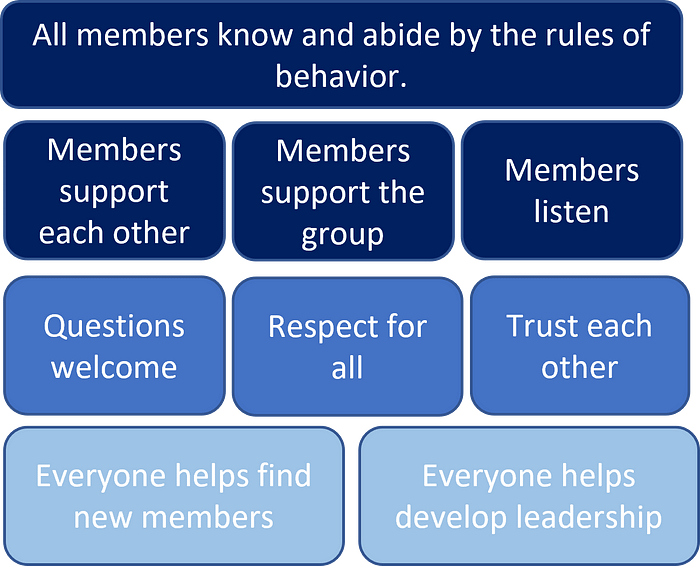[I have been trying new things and, specifically, posting on Medium. com. You can find this post and others at kathy-edersheim.medium.com]
You know what you are looking for and you have the time to commit to a community (series of articles at Community articles)— now you need to find opportunities that are right for you. It is time to determine which communities might bring you social connections, self-definition, and individual identity. The goal is for you to find a role in the community that will help you build the life you want through connections and actions — a way to make your dreams reality.
It takes work to build a sense of community for yourself and for others. Let’s plunge into the world of robust entities and organizations — what makes them strong, how you can strengthen your connection, and generally how to make the most of the experience.
You start with the fundamentals that make for a sustainable and worthwhile community. As you think about these elements, you will be creating a profile of the community that can help guide participation and engagement.
Mission
First consideration is the mission or purpose of the organization. Whether looking at a website, reading material or talking to others, you should be confident that the mission is in alignment with your interests because that is why you choose to be part of an organization. In addition to aligning with your interests, confirm that the mission statement is well-articulated because that is crucial for a well-established, sustainable entity.
For a focused, organized entity, you should be able to follow this path:

These considerations can provide perspective on casual groups too. You can apply them to anything from a book club to a professional organization.
If you feel comfortable with the outcome of the flowchart, it is time to move on to the next section. If you cannot answer the questions, do some more investigation of the group. If you are thinking about an existing group, do enough research and talk to enough involved people to be able to answer the questions to your satisfaction. For a start-up entity, you might join the conversation so that they consider these areas and guide them to align with your interests.
Culture and Commitment
Each entity has a unique culture built on the expectations of participants, policies, mission, history, and many other factors. Some organizations are more intentional than others about creating a sense of belonging, a hierarchy, or behavioral norms. The nature, purpose, and interaction of the people defines the entity and determines the experience for the members.
When deciding about participation in an entity, you need to know and adopt the culture or be prepared to work towards changing it.
Ideally, any group would follow these nine tenets of community culture:

Rituals
Rituals are part of the culture and help the group bond. The combination of rituals often makes the organization unique in some way and are most effective when they have some alignment with purpose. For some groups, it is reading the mission statement at the beginning of every meeting and for others it might be silent reflection. Or it could be a certain type of welcome for new participants or networking after a meeting.
For each community that you are assessing, consider if you comfortable with the rituals and feel that they accomplish the goal of strengthening identity and furthering the purpose. Remember that some rituals are not obvious to the outsider so you might need to find out what is expected when you are part of the group. If you are concerned about the rituals and culture of a group, look for another entity with a similar purpose.
Being a Contributor
Here is where it gets personal. Remember that community is inherently mutually supportive so you must plan on being a contributor of some sort. Doing something for the community makes you a good member. Also, you will get a greater sense of belonging if you provide something to the community and interact with others in that purposeful way. With your knowledge of the purpose and culture of the entity, consider:
– what you might want to do that strengthens the organization
– how you want to be, and
– what you want to get from your participation whether it is advice, the opportunity to play a sport, or companionship in looking at birds.
Now you have the start of a road map for where you want to be in terms of your community engagement. Next topic is group structures so that you understand your communities and can establish your plan for participation.
Tell me with whom you associate, and I will tell you who you are. — Johann Wolfgang Von Goethe.



